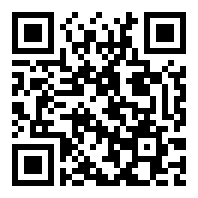Anxiety is a feeling of unease, such as worry or fear, that can be mild or severe. Everyone has feelings of anxiety at some point in their life. For example, you may feel worried and anxious about sitting an exam or having a medical test or job interview.
Symptoms
- Feeling nervous, restless or tense.
- Having a sense of impending danger, panic or doom.
- Having an increased heart rate.
- Breathing rapidly (hyperventilation)
- Sweating.
- Trembling.
- Feeling weak or tired.
- Trouble concentrating or thinking about anything other than the present worry.
Anxiety is incredibly common, and whats more common is how easy it is to deal with. Not easy to think beyond how anxious you are and how you can overcome it, but from my experience its one of the easiest things to do.
I have had many clients come to me for resolving this issue and I can't pick out one person who it didnt work for. The enlightening thing is
Fear or phobia of driving a vehicle may cause a person to feel driving anxiety.
It can result in significant distress and impact someone’s everyday life. A person may experience emotional distress while driving and avoid certain situations on the road or driving in general.
A broken heart (also known as heartbreak or heartache) is a metaphor for the intense emotional stress or pain one feels at experiencing great loss or deep longing. The concept is cross-cultural, often cited with reference to unreciprocated or lost love.
Failed romantic love can be extremely painful; people with a broken heart may succumb to depression, anxiety and, in more extreme cases, post-traumatic stress disorder.
Low self-esteem means not holding yourself in high regard.
If you have low self-esteem, you might feel shy or anxious around other people, think of yourself as incapable or criticize yourself harshly.
Some people with low self-esteem know that they judge themselves too harshly, whereas others hold onto their negative beliefs so strongly that they can feel like facts.
Low self-esteem affects many people, and may make you more vulnerable to struggling with other mental health problems. Fortunately, there are helpful psychological approaches for improving your self-esteem.
An obsession is an unwanted and unpleasant thought, image or urge that repeatedly enters your mind, causing feelings of anxiety, disgust or unease.
A compulsion is a repetitive behaviour or mental act that you feel you need to do to temporarily relieve the unpleasant feelings brought on by the obsessive thought.
Fear of public speaking is a common form of anxiety.
It can range from slight nervousness to paralyzing fear and panic. Many people with this fear avoid public speaking situations altogether, or they suffer through them with shaking hands and a quavering voice.
Sugar consumption can create a short-term high and a spark of energy in the body. Some studies have suggested that sugar is as addictive as Cocaine.
People often enjoy the dopamine release that sugar brings. But due to the addictive nature of sugar, long-term health effects like obesity and diabetes are a risk of sugar overindulgence. Similar to other compulsions or behavioral addictions, sugar addiction is a special risk for people with low moods, anxiety, and stress.
Additionally, people who suffer from constant tiredness may reach for carb-rich sugary foods for a boost.
Sugar releases endorphins in the body and combines with other chemicals in the body, resulting in a surge of energy. Once someone mentally connects sugar with help providing energy, they may become dependent on it (usually inadvertently). People may begin to crave sugar to balance irritability, emotional lows, and other conditions.
At this point there is often little control over dietary habits, and a sugar addiction has developed.


 25% discount for Key Workers (Police, Fire, NHS)
25% discount for Key Workers (Police, Fire, NHS)